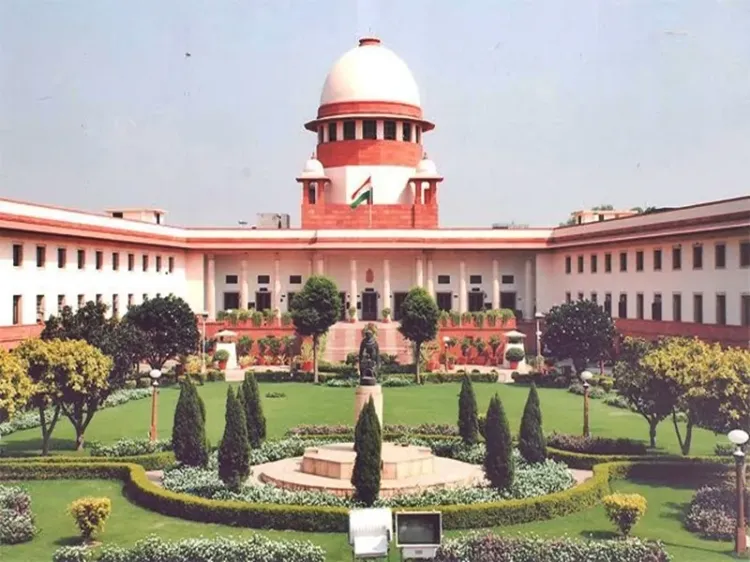Supreme Court Reviews Proposal for Independent CAG Appointment Mechanism

Synopsis
Key Takeaways
- Supreme Court to examine the appointment process for CAG.
- Petition filed by Centre for Public Interest Litigation (CPIL).
- Proposes an independent panel for appointments.
- Current method is executive-driven.
- Article 148 of the Constitution governs CAG appointments.
New Delhi, March 17 (NationPress) The Supreme Court has agreed to investigate a petition requesting a neutral and independent mechanism for the appointment of the Comptroller and Auditor General of India (CAG).
This petition, submitted by the Centre for Public Interest Litigation (CPIL), an NGO, challenges the current method of appointing the CAG exclusively by the executive, advocating instead for a selection process involving an independent panel that includes the Prime Minister (PM), Leader of Opposition (LoP), and the Chief Justice of India (CJI).
The division bench, comprising Justices Surya Kant and N.K. Singh, issued a notice to the Centre and requested a response from the Union government regarding the issue, linking the petition to another pending request for similar relief.
During the hearing, advocate Prashant Bhushan, who represented the petitioner, emphasized the importance of creating an independent mechanism for the selection of the CAG.
Bhushan highlighted previous judgments from the apex court concerning the appointments of the CBI Director and top officials within the Election Commission of India.
In 2023, the Supreme Court issued several directives regarding the selection of the Chief Election Commissioner (CEC) and the two Election Commissioners (ECs) within the electoral body.
Following Bhushan's arguments, the Justice Kant-led Bench indicated that the matter necessitates further examination to determine if the apex court could intervene in the appointment process, given that Article 148 of the Constitution states that the CAG shall be appointed by the President based on the advice of the PM.
Additionally, the Justice Kant-led Bench mentioned that this issue should ultimately be decided by a three-judge Bench.
In response, Bhushan suggested that the petition might warrant referral to a Constitution Bench (composed of five or more judges) as it raises significant questions of law regarding the interpretation of the Constitution.
According to Article 148, the CAG is “appointed by the President by warrant under his hand and seal and shall only be removed from office in like manner and on the like grounds as a Judge of the Supreme Court.” The Constitution mandates that the CAG take an oath or affirmation before assuming office before the President.









